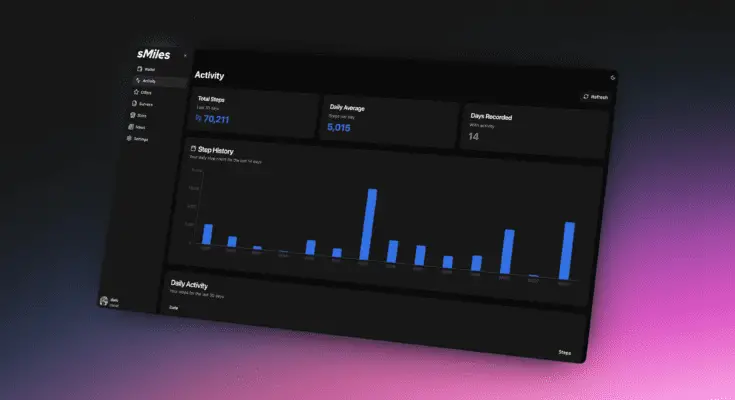You love playing video games, right? Maybe you spend hours refining your skills, exploring digital landscapes, or battling others online. Have you ever wondered if you could actually make money playing video games? It sounds like a dream job for many, and for a growing number, it’s becoming a reality. This guide shows you exactly how to make money playing video games, potentially turning your gaming passion into a viable income stream.
It’s important to be realistic; it’s not always a simple path. Finding success often requires dedication, skill, and sometimes a bit of good timing. Learning how to make money playing video games is definitely possible if you choose a suitable method and commit the necessary effort.
Table of Contents:
- Become a Professional Esports Player
- Livestream Your Gameplay
- Create Gaming Content
- Game Testing and Quality Assurance (QA)
- Become a Game Coach or Tutor
- Sell In-Game Items or Currency
- Write About Video Games
- Develop Your Own Games
- Compete in Smaller Tournaments
- Play-to-Earn (P2E) Gaming
- Exploring Different Gaming Income Paths
- Things to Consider Before Starting
- Conclusion
Become a Professional Esports Player
Competing as a professional esports player is likely the first idea that comes to mind for many aspiring gamers. These professional gaming athletes participate in highly organized video game tournaments, competing for substantial cash prizes. The absolute best players in the competitive gaming scene can earn significant sums, sometimes reaching millions of dollars annually through prize money, salaries, and sponsorship deals.
Reaching this elite level demands exceptional skill, strategic depth, and unwavering dedication. You’ll need incredibly fast reflexes, sharp analytical thinking, and thousands of hours honing your abilities in your chosen game. It mirrors the commitment of traditional sports athletes, but the competitive arena is entirely digital.
Major esports titles such as League of Legends, Dota 2, Valorant, and Counter-Strike 2 host massive international esports tournaments. These premier events attract huge online audiences and boast considerable prize pools, funded by game developers, sponsors, and ticket sales. Becoming a pro gamer usually involves joining an established esports team, securing sponsorships, and consistently performing at the highest level of competitive gaming.
How to Get Started in Esports
First, select a game you genuinely enjoy playing and possess a natural talent for. Concentrate on mastering one primary game to understand its intricate mechanics, meta-game, and strategies thoroughly. Watch gameplay from top pro gamers, study their decision-making processes, and dedicate time to consistent, focused practice sessions.
Actively participate in amateur leagues and online gaming tournaments. Various platforms host competitions suitable for different skill brackets, offering valuable experience in a competitive setting. Success in these smaller events helps build your reputation and can attract attention from semi-professional or professional team scouts looking for new talent.
Networking within the gaming community is also crucial for advancing your career path. Connect with fellow players, experienced coaches, and team managers through online forums, social media, and discord servers. Building genuine relationships can lead to tryout invitations and other significant opportunities within the esports player circuit.
Livestream Your Gameplay
Streaming platforms like Twitch and YouTube Gaming provide a very popular avenue for gamers looking to earn money playing video games. This involves broadcasting your gameplay live while interacting directly with your audience through chat. Successful live streaming blends entertainment value with demonstrable gaming skill, creating an engaging user experience for viewers.
Earning money through streaming comes from multiple potential income streams. Viewers can subscribe to your channel, typically paying a monthly fee for perks like custom emotes and ad-free viewing. Fans can also offer direct financial support through donations or platform-specific virtual currencies like Twitch Bits.
Streaming platforms integrate advertisements into broadcasts, sharing the resulting ad revenue with partnered streamers. Furthermore, as your channel grows, you can attract lucrative sponsorship deals from companies aiming to reach your audience; this might involve promoting gaming hardware, new game releases, accessories, or even lifestyle products like energy drinks. Building a strong gaming brand is essential for securing these deals.
Building a Successful Stream
Consistency is incredibly important for growth. Maintain a regular streaming schedule so your audience knows when they can expect you to be live. Active engagement with your chat is vital; respond to messages, acknowledge subscribers and donations, and foster a welcoming gaming community around your channel.
Your personality is often just as significant as your gaming prowess. Viewers tune in not only to see high-level gameplay but also to connect with the streamer’s personality. Identify what makes your stream different—perhaps humor, educational content, or a specific community focus—and let your genuine self shine through during your money streaming sessions.
While high-end equipment enhances production quality, you don’t need the absolute best gear when starting. A capable PC that can handle gaming and streaming simultaneously, a clear microphone, and a basic webcam form the essential starting kit. You can gradually upgrade your setup as your channel expands and your revenue stream grows, potentially reinvesting some earnings to improve the viewer experience.
Create Gaming Content
If performing live isn’t your preferred style, creating pre-recorded gaming content offers another way to monetize your passion. This commonly involves producing videos for platforms like YouTube or TikTok, or writing articles for a personal blog or established gaming publications. Content types can include detailed game tutorials, insightful reviews, full game playthroughs (Let’s Plays), highlight reels of impressive moments, or humorous gaming compilations.
YouTube monetization primarily functions through ad revenue generated from advertisements shown on your videos (often via YouTube Ads). Earning substantial income requires building a sizable audience through consistent uploads of high-quality, engaging gaming content. Finding a niche and understanding your target audience helps attract loyal viewers.
Writing about video games presents another viable path for a content creator. You could launch your own gaming blog, focusing on game reviews, industry analysis, or opinion pieces. Alternatively, many established gaming websites and magazines hire freelance writers, allowing you to contribute articles and build a portfolio while earning money writing game reviews or features.
Finding Your Content Niche
Consider what distinguishes your viewpoint or content style. Do you possess a sharp sense of humor, exceptional skill in a specific genre, or a talent for explaining complex game mechanics clearly? Concentrate on creating gaming content that you genuinely enjoy producing, as this enthusiasm often translates to more engaging material for your audience.
Understanding basic search engine optimization (SEO) principles is beneficial for increasing the visibility of your videos or articles. Proper keyword usage, compelling titles, and eye-catching thumbnails (for videos) are crucial for attracting clicks and views. Effectively marketing your brand across social media platforms also drives traffic to your content.
Consistency in quality and upload schedule helps build viewer loyalty. Experiment with different content formats to see what resonates best with your audience. Building a strong relationship with your gaming community through comments and social media interaction further strengthens your position as a content creator.
Game Testing and Quality Assurance (QA)
Before video games are released to the public, they undergo extensive testing to identify and eliminate bugs, glitches, performance problems, and potential design flaws. Game testers, often referred to as Quality Assurance (QA) testers, are paid to play games methodically with the specific goal of finding these issues. Essentially, your job is to try and break the game to help improve the final product.
This role demands keen attention to detail, patience, and excellent communication skills. Testers must accurately document any problems they encounter, providing clear, step-by-step instructions for developers to reproduce and fix the bugs. This position offers a valuable look into the game development process from within the gaming industry.
Entry-level game tester positions are frequently offered on a contract or hourly basis by game companies or specialized QA service providers like Keywords Studios . While it might lack the public spotlight of being a pro gamer or streamer, game testing provides a relatively stable way to earn money playing video games and can serve as an entry point to other roles within video game companies, potentially leading to a career path in game design or production.
What QA Testing Involves
Game testers typically follow detailed test plans provided by the game developers or QA leads. These plans might require playing specific game sections repeatedly, attempting unusual player actions, or testing across various hardware configurations. Careful documentation of findings, including screenshots or video evidence, is standard practice.
Patience is a necessary virtue, as you will likely replay the same levels or scenarios countless times searching for elusive bugs. Strong written communication skills are essential for crafting clear, concise, and actionable bug reports that effectively convey the issue to the development team. Sometimes, you might specialize in certain types of testing, like localization (checking language translations) or compliance (making sure the game meets platform requirements).
Opportunities exist both working directly for game developers and for third-party QA companies. Remote testing jobs are increasingly common. Experience in QA can sometimes transition into roles within game design or production teams over time.
Become a Game Coach or Tutor
Are you exceptionally skilled or knowledgeable in a specific competitive video game? Other players, from amateurs to aspiring professionals, might be willing to pay you for personalized coaching to help them improve their gameplay. Game coaching has become a significant market, especially for popular esports titles and competitive multiplayer games.
As a coach, you could offer personalized one-on-one training sessions, analyze gameplay footage (VOD reviews) to identify mistakes and suggest improvements, or create structured training programs and guides. Several online platforms now exist specifically designed to connect gaming coaches with potential students seeking to elevate their skills. Your success hinges on your proven expertise, teaching ability, and communication skills.
Building a strong reputation is vital for attracting clients. Positive reviews and testimonials from students you have successfully coached serve as powerful social proof. You can also leverage live streaming or content creation platforms to showcase your high-level skills and coaching methodology, further establishing your credibility within the gaming community.
Sell In-Game Items or Currency
Certain video games, particularly Massively Multiplayer Online Role-Playing Games (MMORPGs) like World of Warcraft or RuneScape, feature economies where players can trade virtual items or in-game currency. Some dedicated players spend considerable time “farming” rare items, crafting materials, or accumulating large amounts of game currency. They then sell these virtual goods to other players for real-world money.
It’s crucial to understand that this practice, often called Real Money Trading (RMT), can be controversial and frequently violates the terms of service established by the game developers. Engaging in RMT could lead to account suspension or bans. Always research and respect the rules of the specific game before considering this method of earning money.
Third-party marketplaces exist to facilitate these transactions, but using them carries risks, including scams and potential account penalties. Alternatively, the rise of blockchain-based games, often labeled Play-to-Earn (P2E), directly incorporates the concept of earning tradable digital assets (cryptocurrencies or NFTs) through gameplay, which can then potentially be exchanged for real money on specific exchanges.
Write About Video Games
If you possess strong writing abilities and a deep passion for video games, pursuing a career as a gaming journalist, reviewer, or blogger could be a rewarding option. You can produce various forms of content, including breaking news articles, in-depth game reviews, engaging feature stories, or thought-provoking opinion pieces about the gaming industry. Your work might be published on specialized gaming websites, tech blogs, or even mainstream news outlets.
Freelancing is a common starting point for many aspiring games writers. Begin by building a portfolio showcasing your best writing samples across different formats (reviews, news, features). Proactively pitch compelling story ideas to editors at publications that align with your interests and writing style; persistence is often required.
Starting your own gaming blog provides complete creative control but requires effort to build an audience. Monetization options for a personal blog include display advertising (like Google AdSense), affiliate marketing (earning commissions by linking to games or products on sites like Amazon), sponsored content, or even reader donations. Success requires consistent high-quality content, SEO knowledge, and effective promotion through social media.
Develop Your Own Games
This represents a more technically demanding path but offers the potential for significant creative and financial rewards. If you have skills in programming, game design, art, animation, or sound design, you could create and sell your own video games. Modern game engines like Unity and Unreal Engine have lowered the barrier to entry, making game development tools more accessible than ever before, even for small teams or solo creators.
You can distribute and sell your finished games on major digital storefronts such as Steam (for PC), the Apple App Store (for iOS), or the Google Play Store (for Android), as well as console marketplaces. Achieving commercial success depends heavily on creating a polished, engaging game that resonates with players and effectively marketing it to your target audience. Even relatively simple or niche games developed by a skilled video game developer can find success.
Game development is often a collaborative effort requiring a team with diverse skills, although successful solo game developers certainly exist. You can start with smaller projects, perhaps focusing on mobile games or focused PC experiences, to build your skills and portfolio. Participating in game jams (timed game creation events) is an excellent way to practice rapid development, experiment with ideas, and connect with potential collaborators within the game developers community.
Compete in Smaller Tournaments
You don’t necessarily need to reach the absolute peak of professional esports to earn money from competitive gaming. Numerous smaller online and local gaming tournaments offer cash prizes or other valuable rewards like gaming merchandise or gift cards. These competitions are generally more accessible to skilled amateur and semi-professional players.
Search for upcoming competitions for your favorite games on community forums, social media groups dedicated to specific games, or dedicated tournament platforms like Battlefy or Challengermode. Even consistently winning modest prize pools from these smaller esports tournaments can accumulate into a noticeable supplementary income stream. Furthermore, participating regularly provides invaluable practice under pressure if you have ambitions of reaching higher levels of competition.
Building a reputation within your local or online gaming community can also be beneficial. Winning local LAN events, performing well in community-run leagues, or becoming known as a strong player in specific online ladders can enhance your profile. Success in these smaller competitive gaming settings demonstrates your skill and dedication.
Play-to-Earn (P2E) Gaming
This emerging model integrates blockchain technology directly into the gaming experience, allowing players to potentially earn cryptocurrency tokens or Non-Fungible Tokens (NFTs) through their gameplay activities. These digital assets possess real-world value and can theoretically be traded on cryptocurrency exchanges or NFT marketplaces for fiat currency (like US dollars) or other cryptocurrencies. This is a distinct way to earn money playing.
Games like Axie Infinity brought significant attention to the P2E model, though the market for P2E assets can be highly volatile and speculative. It’s essential to conduct thorough research before investing significant time or money into any P2E game. Understand the game’s underlying economic model (tokenomics), the potential risks involved (including market crashes or game failures), and the reputation of the development team.
Potential earnings from P2E games can vary dramatically; some early adopters or highly skilled players reported substantial income, while many others earn very little or even lose money after initial investments. Success often depends on strategic gameplay, understanding market dynamics, initial investment levels, and the overall sustainability and popularity of the specific game’s ecosystem. This path requires tolerance for financial risk.
Exploring Different Gaming Income Paths
Choosing the right path depends heavily on your skills, personality, and risk tolerance. Here’s a brief comparison:
| Method | Primary Skill | Income Potential/Volatility | Startup Effort/Cost | Best For |
|---|---|---|---|---|
| Esports Player | Elite Gaming Skill, Teamwork | Very High / High Volatility | Very High Effort / Low-Med Cost | Highly skilled, competitive individuals |
| Live Streaming | Gaming Skill, Entertainment, Community Building | Medium-High / Medium Volatility | Medium Effort / Low-Med Cost | Entertaining personalities, community builders |
| Content Creation (Video/Blog) | Gaming Knowledge, Editing/Writing, SEO | Medium-High / Medium Volatility | Medium Effort / Low Cost | Creative individuals, good communicators |
| Game Testing (QA) | Attention to Detail, Communication | Low-Medium / Low Volatility | Low-Medium Effort / Low Cost | Detail-oriented individuals seeking stable entry |
| Game Coaching | Expert Game Knowledge, Teaching Ability | Medium / Medium Volatility | Medium Effort / Low Cost | Expert players with good communication skills |
| Game Development | Programming, Design, Art Skills | Low-Very High / High Volatility | High Effort / Varies (Low to High Cost) | Technically skilled, creative individuals/teams |
| P2E Gaming | Strategic Gameplay, Market Understanding | Varies Wildly / Very High Volatility | Medium Effort / Varies (Potential Investment Needed) | Risk-tolerant individuals, strategic thinkers |
Things to Consider Before Starting
Making money playing video games successfully often involves more than just playing well. It frequently requires building a personal gaming brand, marketing yourself or your content effectively across social media, and managing your finances responsibly. Depending on your location and earnings, you might need to register as self-employed and handle your own taxes, potentially setting aside funds to save money for tax obligations.
Burnout is a genuine concern when transforming a beloved hobby into a primary source of income or a full-time job. The pressure to perform, create content consistently, or play for long hours can sometimes diminish the enjoyment you initially found in gaming. Establishing healthy boundaries between “work” and leisure time is important for long-term sustainability and well-being.
Income derived from gaming activities can be highly inconsistent, particularly during the initial stages of building your audience, client base, or competitive standing. Having some financial savings or maintaining another source of income while you establish your chosen gaming career path is often a sensible approach. Be prepared for fluctuations and challenges as you work towards generating a steady income from your gaming passion.
Conclusion
Numerous pathways exist for how to make money playing video games in today’s digital landscape. From the high-stakes pressure of professional esports competition and the community focus of live streaming to the creative outlets of content creation and game development, there are monetization options suited to various skills, interests, and personalities within the vibrant gaming industry.
Achieving success generally demands a combination of genuine passion for gaming, significant dedication to improving skills or creating content, and a thoughtful approach to your chosen method. While transforming your gaming hobby into a reliable revenue stream or even a full-blown career path may not happen instantly, consistent effort and strategic planning make it an attainable goal for many.
Explore the different income streams that genuinely excite you and align with your strengths. Whether you dream of becoming a pro gamer, a popular content creator, or an insightful game tester, the journey exploring how to make money playing video games begins with taking that initial step. Choose your path, commit to learning, and see where your gaming passion can take you.



